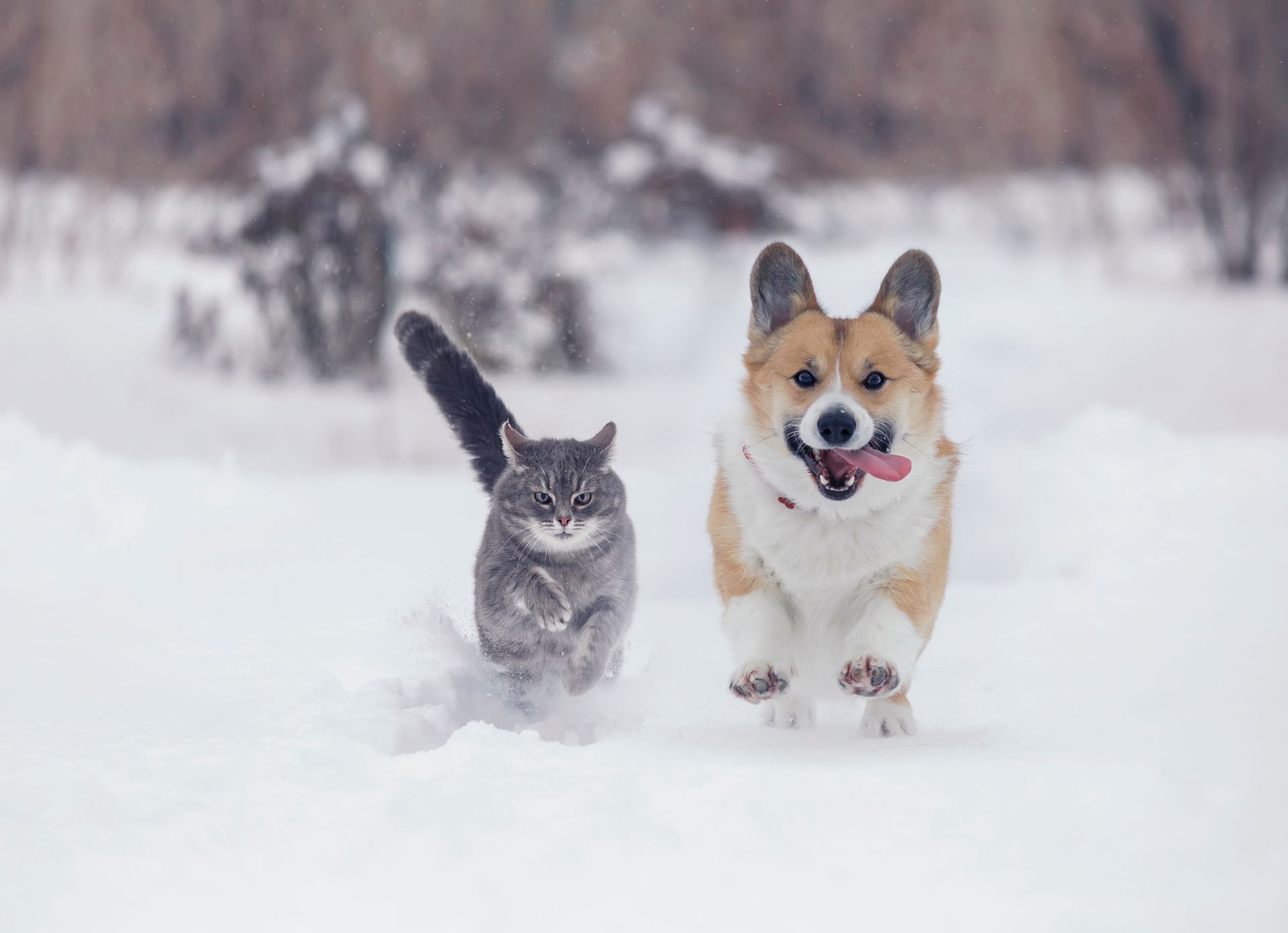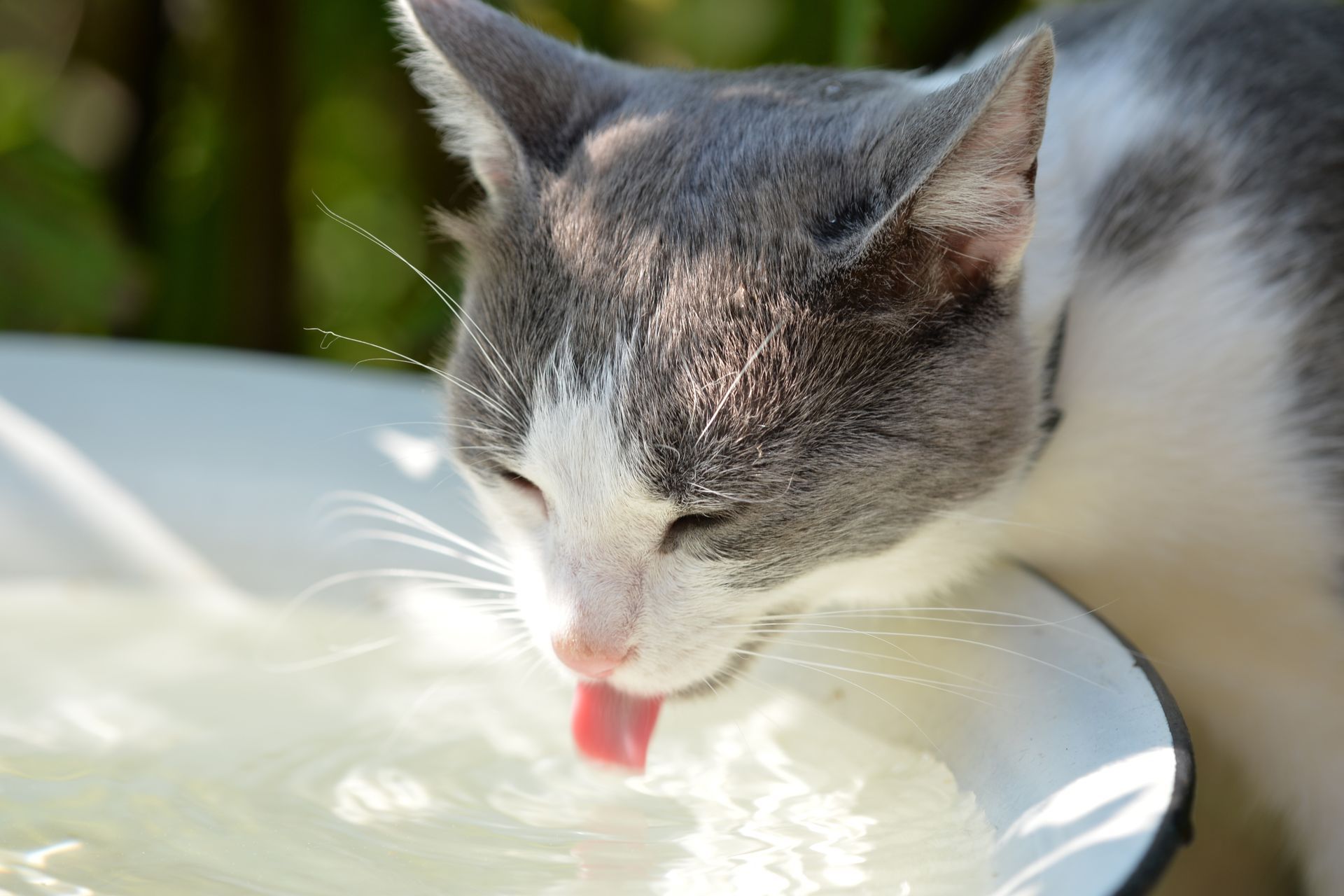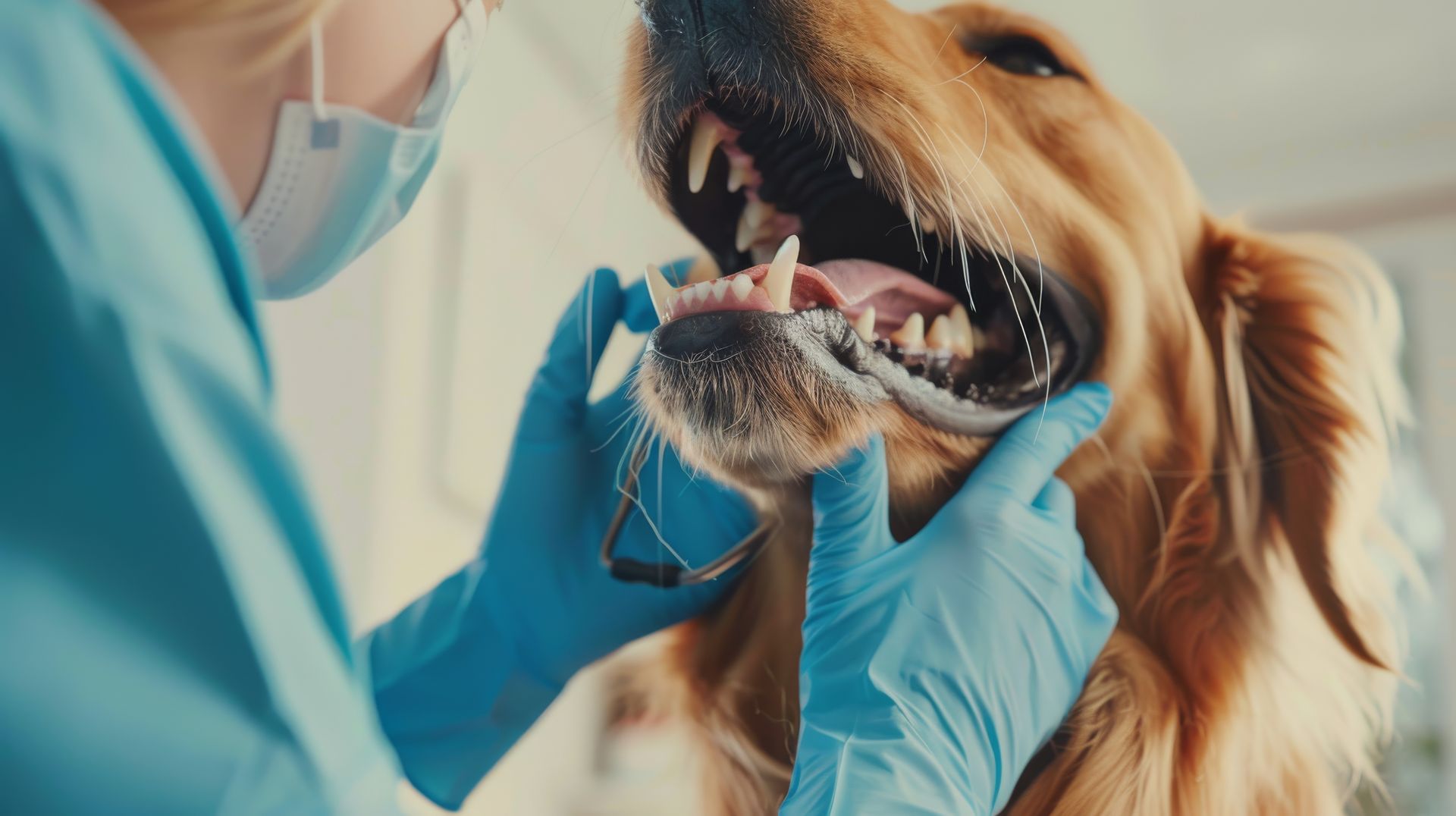3964 TX -121, SUITE #100
LEWISVILLE, TX, 75056
LOCATED AT OLIVIAN AT THE REALM — ENTRANCE THRU WINDHAVEN PARKWAY
Spring Pet Allergies: How to Help Your Pet Find Relief
The season of renewal brings blooming flowers, green grass, and unfortunately for many pets, the onset of uncomfortable allergy symptoms. Learn how to identify spring allergies in pets and discover effective ways to provide your furry family member with much-needed relief.
Understanding Spring Allergies in Pets: More Common Than You Think
When spring arrives, many pet owners notice their dogs and cats scratching more frequently, developing skin issues, or showing signs of respiratory distress. These symptoms often point to seasonal allergies, which affect our animal companions just as they affect humans—though the symptoms may manifest differently.
Spring allergies in pets typically stem from environmental triggers that become more prevalent as the season changes:
● Tree, grass, and flower pollen
● Mold spores that thrive in damp spring conditions
● Dust mites that multiply during spring cleaning
● Insect bites and stings that increase with warmer weather
At Castle Hills Vet, we see a significant increase in allergy-related visits during spring months. Understanding what causes these reactions and how they manifest can help you provide faster relief for your pet.
Recognizing Pet Allergy Symptoms: What to Watch For
Allergic reactions in pets often look different from human allergies. While we might sneeze and develop watery eyes, our pets typically show allergic responses through their skin and digestive systems. Here are the most common pet allergy symptoms to monitor:
Skin-Related Symptoms
● Excessive scratching, licking, or chewing at certain areas
● Red, irritated skin that may appear inflamed
● Hot spots (painful, inflamed areas that develop rapidly)
● Hair loss in patches
● Greasy or flaky skin
● Recurring ear infections (especially in dogs)
Respiratory Symptoms
● Sneezing more than usual
● Coughing or wheezing
● Reverse sneezing (in dogs)
● Watery eyes or discharge
Digestive and Behavioral Symptoms
● Vomiting or diarrhea
● Paw licking or chewing
● Face rubbing against furniture or carpeting
● Increased lethargy due to discomfort
● Changes in appetite
It's important to note that many of these symptoms can also indicate other health issues. If your pet shows persistent signs, contact Castle Hills Vet for a proper diagnosis.
Common Allergens That Affect Pets in Spring
Understanding what's triggering your pet's allergies can help you develop an effective management strategy. Here are the most common spring allergens that affect our four-legged friends:
Pollen
Just like humans, pets can develop sensitivities to tree, grass, and weed pollens. These microscopic particles are easily inhaled or can stick to your pet's fur, causing reactions when they're absorbed through the skin or licked during grooming.
Environmental Allergens
●Mold spores that flourish in damp spring environments
●Dust mites that become more active as temperatures rise
●Fresh mulch in garden beds
●Lawn fertilizers and pesticides
Insect-Related Allergens
● Flea saliva (one of the most common pet allergens)
● Bee or wasp stings
● Mosquito bites
● Ant bites
Indoor Allergens
Spring cleaning can stir up dust and other indoor allergens, making them more likely to affect your pet even when they're inside.
How to Treat Pet Allergies: A Multi-Faceted Approach
Managing spring allergies in pets typically requires a combination of prevention, environmental management, and medical treatment. Here's a comprehensive approach to providing relief:
1. Minimize Allergen Exposure
●Wipe your pet's paws and coat with a damp cloth after outdoor activities to remove pollen
●Consider limiting outdoor time during peak pollen hours (typically early morning and late afternoon)
●Create allergen-free zones in your home, particularly where your pet sleeps
●Use air purifiers with HEPA filters to reduce airborne allergens
●Vacuum frequently using a vacuum with a HEPA filter
2. Regular Bathing and Grooming
Proper grooming plays a crucial role in managing pet allergies:
●Bathe your pet weekly using a gentle, veterinarian-recommended shampoo
●Consider hypoallergenic or medicated shampoos for pets with skin symptoms
●Brush your pet outdoors to remove loose fur and allergens
●Clean bedding weekly in hot water to kill dust mites and remove allergens
3. Dietary Support
Some nutritional approaches may help reduce allergy symptoms:
● Omega-3 fatty acids can help reduce inflammation (found in fish oil supplements)
● Probiotics may improve immune system function and gut health
● Discuss prescription or specialized diets with your veterinarian
● Ensure proper hydration, which helps maintain skin health
4. Medical Interventions
When home remedies aren't enough, several medical options can provide relief:
● Antihistamines (specifically formulated for pets)
● Anti-inflammatory medications
● Immunotherapy (allergy shots)
● Medicated shampoos or topical treatments
● Prescription medications to control itching
Never give your pet human allergy medications without consulting your veterinarian first. Many human products contain ingredients that are toxic to animals or have different dosing requirements.
When to Seek Veterinary Care for Pet Allergies
While mild allergy symptoms might respond to home care, certain situations require professional intervention. Schedule an appointment with Castle Hills Animal Hospital if your pet:
● Shows severe itching that causes self-trauma
● Develops hot spots or skin infections
● Has recurrent ear infections
● Experiences breathing difficulties
● Shows lethargy or reduced appetite
● Has symptoms that don't improve with home care
● Develops new or worsening symptoms
Early intervention can prevent complications and chronic conditions from developing. Our veterinary team at Castle Hills Vet can perform diagnostic tests to identify specific allergens and develop a targeted treatment plan for your pet.
Advanced Treatment Options for Severe Allergies
For pets with severe or persistent allergies, Castle Hills Vet offers several advanced treatment options:
Allergy Testing
Identifying the specific allergens affecting your pet can help develop a more targeted treatment approach. We offer:
● Intradermal skin testing
● Blood testing for allergen-specific antibodies
Immunotherapy
Based on allergy test results, we can develop custom immunotherapy treatments that gradually desensitize your pet to specific allergens. This approach often provides long-term relief for pets with severe seasonal allergies.
Medication Management
For pets requiring medication, we develop carefully monitored treatment plans that may include:
● Apoquel® or Cytopoint® for itch relief
● Corticosteroids for severe inflammation (short-term use)
● Antibiotics for secondary skin infections
● Medicated shampoos and topical treatments
Preventing Spring Allergies in Pets: Plan Ahead
The best approach to spring allergies is prevention. Here's how to prepare before allergy season hits full force:
1. Schedule a pre-season check-up at Castle Hills Animal Hospital to develop a prevention plan
2. Start allergy medications before symptoms appear (if recommended by your veterinarian)
3. Establish a regular bathing and grooming routine
4. Create an indoor safe haven by deep cleaning your home before spring arrives
5. Consider starting immune-supporting supplements (with veterinary approval)
Breed-Specific Allergy Concerns
Some breeds are more prone to allergic conditions than others:
Dogs with Higher Allergy Risk
● Terriers (especially West Highland White Terriers)
● Retrievers and Labradors
● Bulldogs and other flat-faced breeds
● Boxers
● German Shepherds
Cats with Higher Allergy Risk
● Siamese and other Oriental breeds
● Persian cats
● Abyssinians
If you have one of these breeds, being proactive about allergy management is particularly important.
The Role of Indoor Air Quality in Pet Allergies
Many pet owners don't realize that indoor air quality significantly impacts pet allergies. Consider these improvements:
● Install HEPA air purifiers in rooms where your pet spends the most time
● Change HVAC filters monthly during allergy season
● Use vacuum cleaners with sealed HEPA filtration
● Consider removing carpet in favor of hard flooring
● Wash pet bedding frequently in hot water
● Keep humidity levels between 40-50% to discourage dust mites and mold
Partner with Castle Hills Vet for Comprehensive Allergy Care
At Castle Hills Vet, we understand the distress that allergies cause both pets and their owners. Our comprehensive approach to diagnosing and treating pet allergies ensures your furry family member receives the most effective care.
Don't let spring allergies diminish your pet's quality of life. Contact us today to schedule an allergy consultation and develop a personalized treatment plan that addresses your pet's specific needs.
With proper management and professional guidance, most pets can enjoy the spring season in comfort, free from the misery of allergic reactions.
This article is for informational purposes only and is not a substitute for professional veterinary advice. Always consult with a qualified veterinarian about your pet's specific health needs.





Castle Hills Animal Hospital provides same day and emergency appointments for Lewisville, The Colony, Carrollton, Plano, Frisco, and surrounding areas.
Get in Touch
Castle Hills Animal Hospital | All Rights Reserved
Privacy Policy | Accessibility | Site Design by Infinity Medical Marketing






